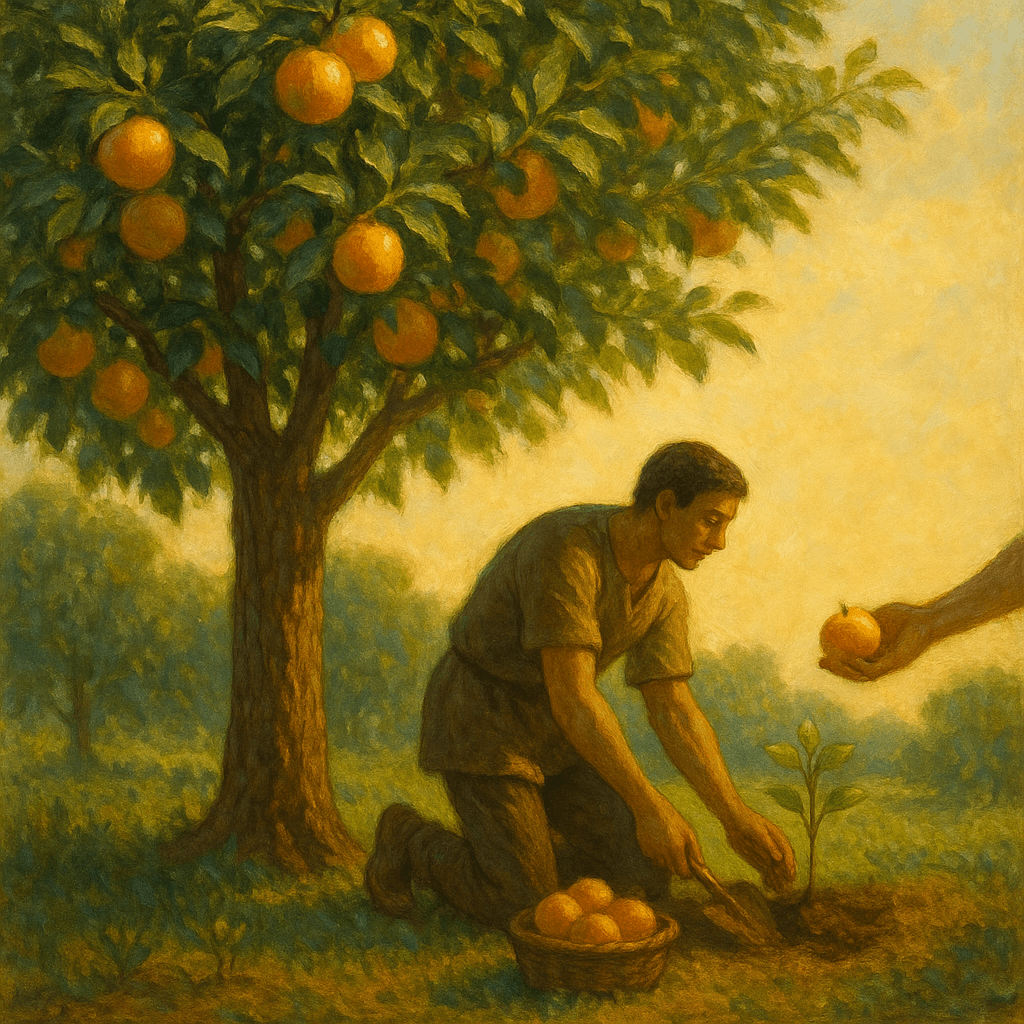Deeds Define Character: Lessons from Saint Basil

A tree is known by its fruit; a man by his deeds. — Saint Basil
—What lingers after this line?
One-minute reflection
Where does this idea show up in your life right now?
The Root of the Proverb
Saint Basil’s observation draws on age-old imagery, comparing human conduct to the natural world. Just as a tree’s fruit reveals its type and health, so too are people’s true natures exposed through their actions. This metaphor has echoed through many cultures, emphasizing that essence is made evident only through external results, not mere appearance or intent.
Biblical and Philosophical Resonances
Building on this idea, the Christian Gospels, such as Matthew 7:16, echo similar sentiments, stating, ‘By their fruits you shall know them.’ Saint Basil, rooted in early Christian theology, channels this wisdom to stress the importance of virtue in daily life. Meanwhile, Aristotle in his *Nicomachean Ethics* argued that virtue arises from habit—a concept linking good character directly to repeated good deeds.
Actions versus Words
Transitioning to the practical, Saint Basil’s insight warns against taking words at face value. Deeds, not declarations, testify to integrity—a concept that has often informed leadership and trust. For instance, Abraham Lincoln famously said, ‘Actions speak louder than words,’ reinforcing that one’s behavior is the ultimate evidence of character. Empty promises, unbacked by effort, carry little weight.
Social Judgement and Reputation
Furthermore, society routinely forms judgments based on observable behavior. Reputations, whether of honesty or duplicity, emerge from patterns people witness over time. In the workplace, for example, diligent employees earn respect, much as a fruitful tree earns admiration. Conversely, those whose actions contradict their pledges risk mistrust and social alienation.
Inspiring Self-Reflection and Growth
In closing, Saint Basil’s wisdom encourages self-scrutiny. By examining our deeds—as a gardener inspects fruit—we gain insight into our character and room for improvement. This perspective doesn’t simply judge others; it invites us to become the kind of people whose consistent ‘fruit’ inspires trust, respect, and the betterment of community, echoing Saint Basil’s enduring call to virtuous living.